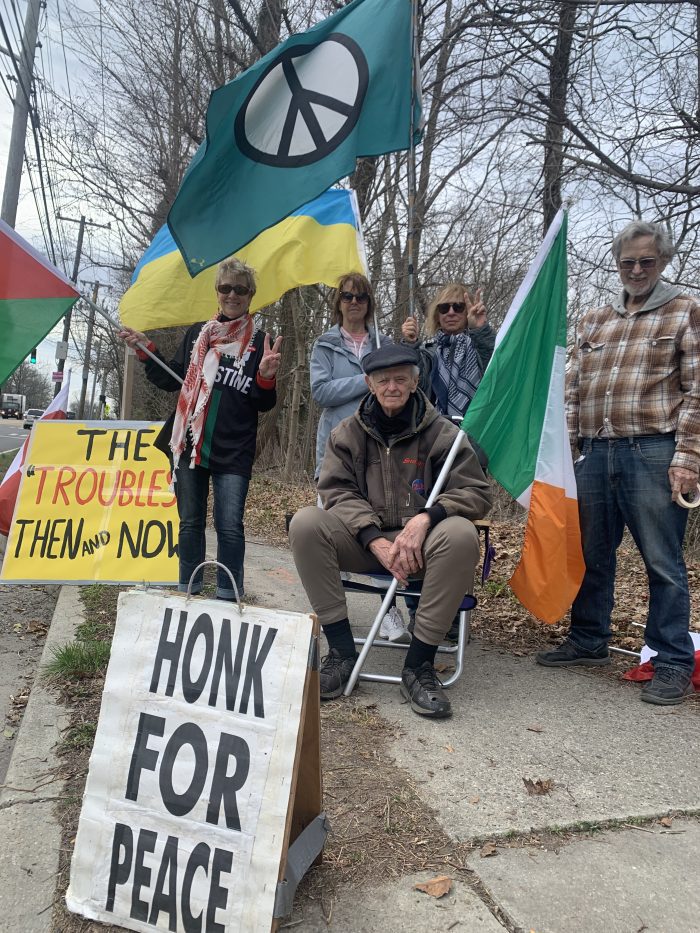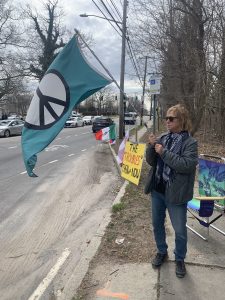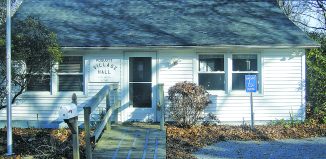Setauket corner still the hub for peace

By Sabrina Artusa
At a bus station in Setauket along Route 25A, Bill McNulty, Susan Peretti and Myrna Gordon will often set up flags representing Ireland, Ukraine, Mexico and various other countries. Between the flags there is a sign that reads “HONK FOR PEACE.”

Among frequent honks and occasional shouts, both in derision and support, the three stand by their message and engage passersby in conversation. Other residents, inspired by their pacifist and “unpolitical” approach, will often join them.
In addition to the “HONK FOR PEACE” sign that McNulty has been using since the 1960s, the group set up a sign that reads “THE ‘TROUBLES’ THEN AND NOW.” An Irishman, McNulty originally started sitting at the bench at the bus stop with only an Irish flag. The small act of solidarity was intended to acknowledge the “violent times” the Irish have had; however, the call for peace can now be applied to “any political movement.”
“We don’t subscribe to violence,” McNulty said. “We try to disarm the angry.”
Although the three have been involved in the North Shore Peace Group for years, it wasn’t until three years ago in the days leading up to St. Patrick’s Day that McNulty and others decided to amplify their message to Setauket at the bus stop that has become their signature place to organize.
McNulty has been an activist for decades, once having fasted for 10 days as a protest. He opposed British involvement in Ireland and various other political movements; but the congregation of flags and call for peace is unspecific in some ways. The flags signify inclusion, the call for peace a statement with which most can agree.
He said his intention is “not to fight them [those who disagree with his views] but to appeal to the mind.”
“I want them to weep when they see the children. I want them to weep when they see what is happening in Ukraine,” he said.
Stephanie D’Auria joined the group after seeing them at the bus station several weeks before. Another resident Tom Lyon arrived with a sign featuring the flags of several African countries. McNulty and Peretti said they would like to add even more.
Lyon, incensed by civilian deaths falling under the category of “collateral damage” in the context of war, said he has been involved with advocacy since 1968.
While standing together on the afternoon of Friday, March 28, a driver called out, “Where is the American flag?” Indeed, the American flag was absent from the collection.
“We’ve always had the American flag in our hearts and minds,” Gordon said.
Further, Peretti argued that their group “stand here for years not because we hate the country but because we want the country to be better.”
“There is nothing more patriotic than realizing that your country was founded on self-determination. Defending this is patriotic,” McNulty said. “Democracy is compromise.”






